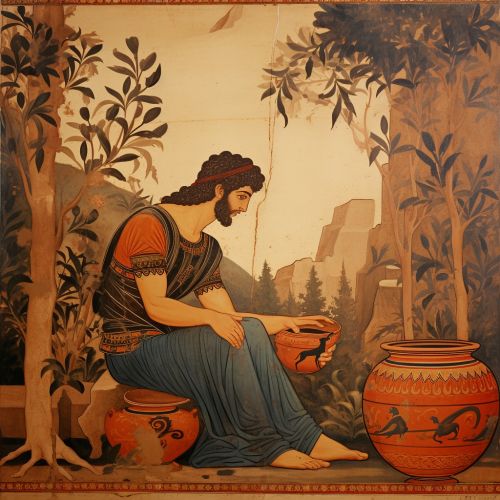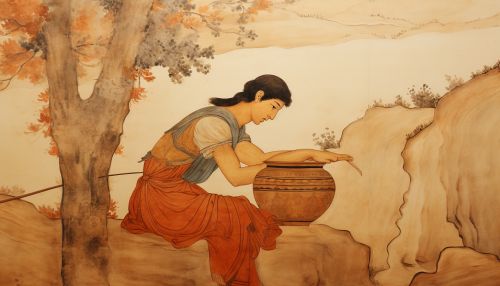Hero Myth
Origins of the Hero Myth
The concept of the hero in mythology has been a central theme in various cultures and civilizations throughout history. The term "hero" originates from the Greek word "hērōs", which translates to "protector" or "defender". The hero myth, also known as the hero's journey or the monomyth, is a narrative pattern that appears in a wide variety of myths, folktales, and legends.


Structure of the Hero Myth
The hero myth typically follows a three-part structure: Departure, Initiation, and Return. This structure was first identified and described by Joseph Campbell, a renowned scholar of mythology, in his book "The Hero with a Thousand Faces".
Departure
The Departure stage begins with the "Call to Adventure", where the hero is invited to leave their ordinary world to undertake a quest or adventure. This call is often delivered by a herald or some form of divine intervention. The hero initially refuses the call due to fear or doubt, but eventually accepts it, often with the help of a mentor.
Initiation
The Initiation stage involves the hero crossing the threshold into the unknown or "special world", where they face trials and challenges. The hero encounters allies and enemies, and must overcome a supreme ordeal, often involving a confrontation with a villain or their own inner demons. The hero then receives a reward, often in the form of a special object or knowledge.
Return
The Return stage involves the hero's journey back to the ordinary world. The hero is pursued by forces of the special world, but eventually makes a successful return, often transformed by the experience. The hero then uses their newfound knowledge or power to restore balance or harmony in their original world.
Variations of the Hero Myth
While the hero myth follows a general pattern, there are numerous variations and adaptations across different cultures and eras. For example, in some myths, the hero does not return to their original world, but instead ascends to a higher realm or achieves some form of immortality. In other myths, the hero's journey is not a physical one, but a psychological or spiritual journey of transformation.
Role of the Hero Myth in Society
The hero myth plays a significant role in society, serving as a vehicle for imparting cultural values and ideals. The hero's journey symbolizes the process of overcoming challenges and achieving personal growth, reflecting the human experience. The hero myth also serves as a metaphor for psychological development and spiritual enlightenment.
Criticisms and Interpretations
While the hero myth is widely recognized and studied, it has also been the subject of various criticisms and interpretations. Some critics argue that the hero myth reinforces patriarchal values, as the hero is often portrayed as a male figure. Others have interpreted the hero myth from a psychoanalytic perspective, viewing it as a manifestation of unconscious desires and conflicts.
